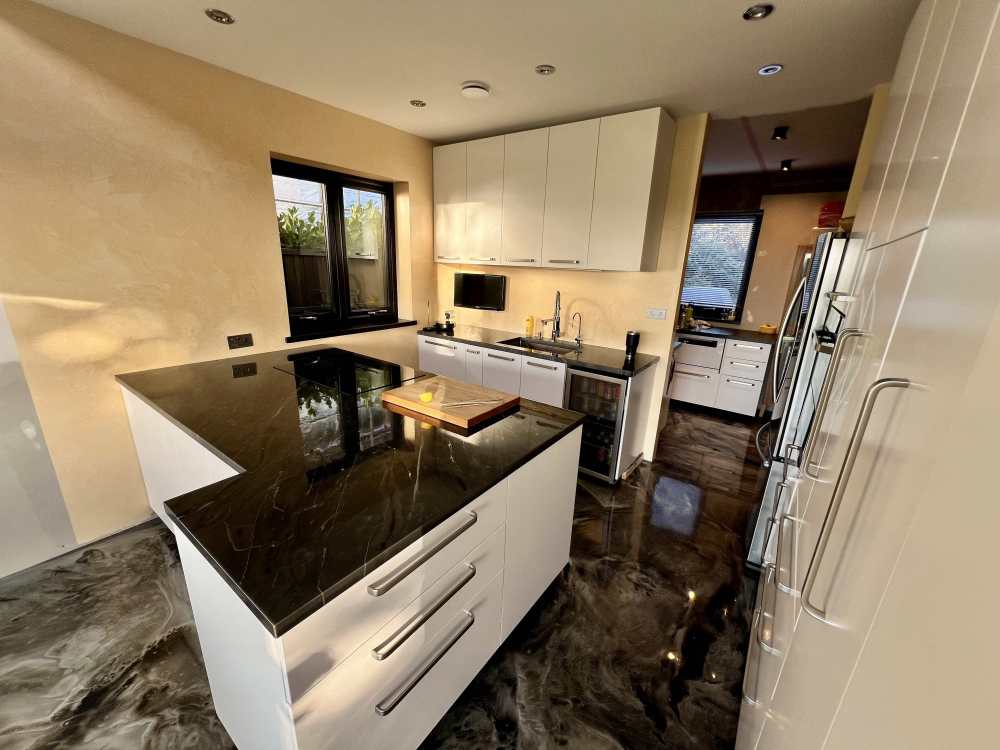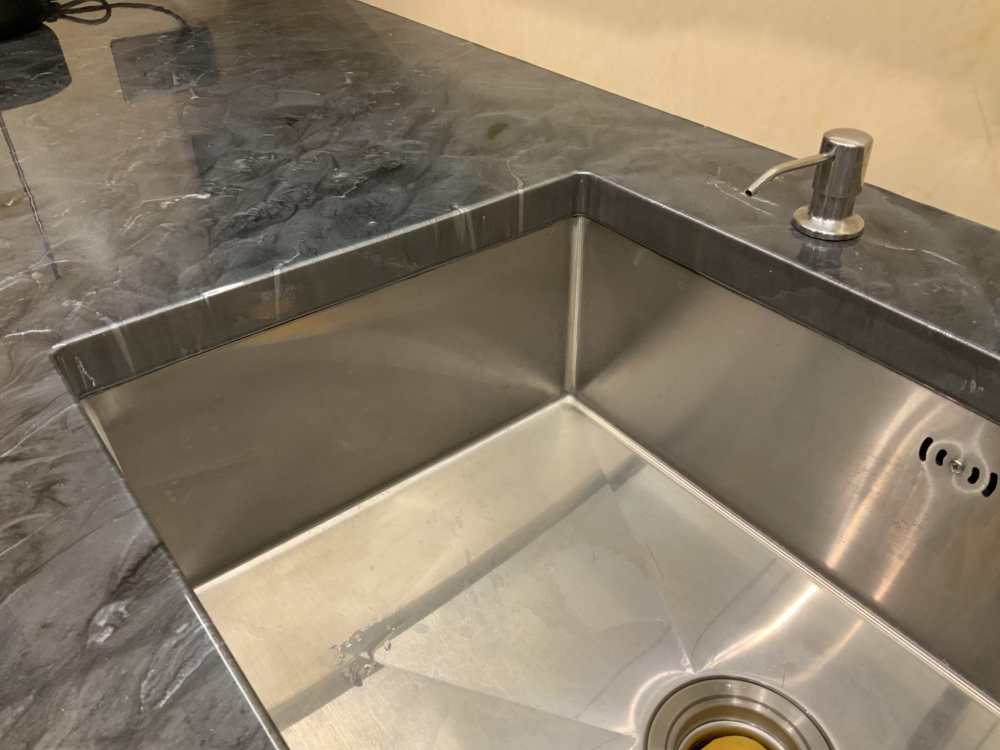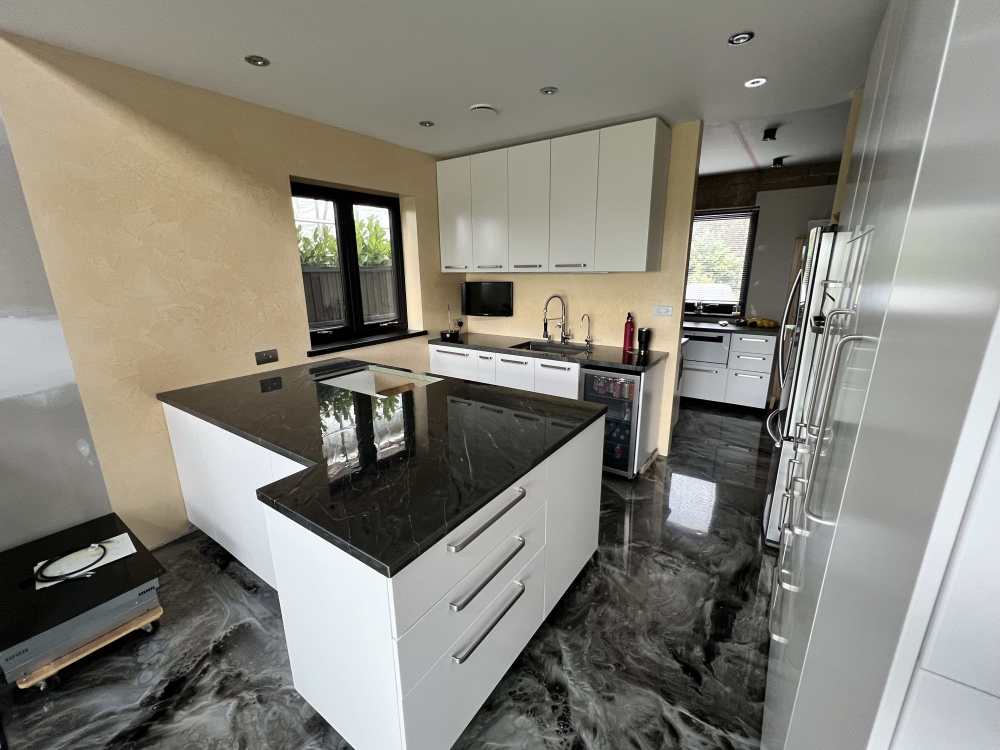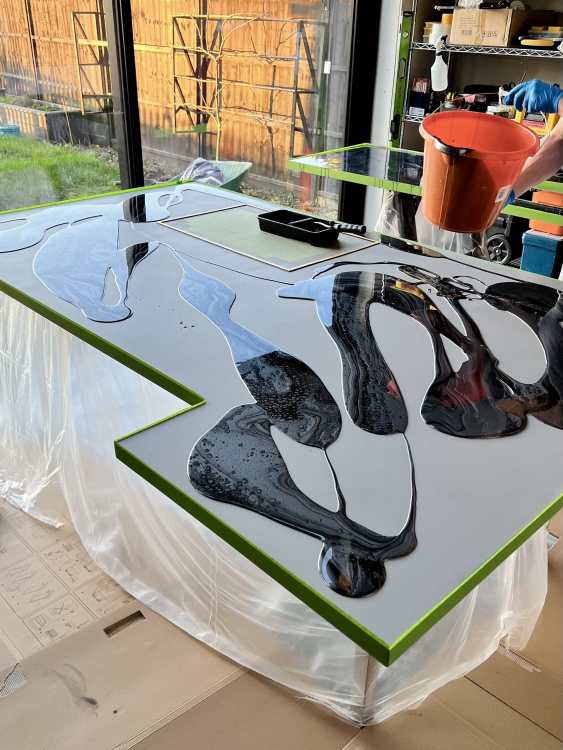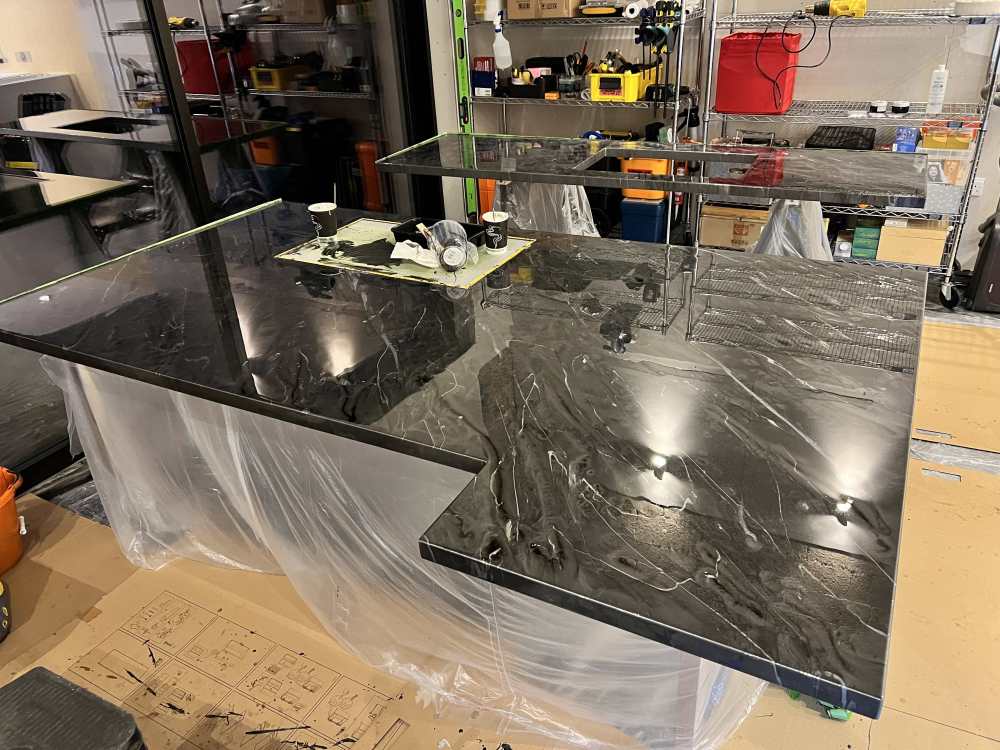
Vesa
Members-
Posts
12 -
Joined
-
Last visited
Vesa's Achievements

Member (3/5)
2
Reputation
-
Hello All. So, I had my first experiments using resin for kitchen worktops. It worked ok, looked ok, but it doesn’t have the heat resistance I was hoping for. I need a kitchen where I can concentrate on cooking, rather than worrying about the surfaces getting damaged by hot pans etc. (or even a hot cup of tea!). I am now looking into other low-cost DIY options. Has anyone tried microcement for worktops? Any experience with any specific type or manufacturer? And what about coatings to make it waterproof? I’m thinking maybe 2-part PU? Varnish of some sort? Or several coats of tung oil? What are your thoughts?
-
Thank you JamesP. I would absolutely love to have solid concrete kitchen worktops (I did some windowsills in bathrooms, poured in-situ and they worked out great) but I’m not brave enough to go there with bigger pieces. Not just yet anyway. The main reason being the weight of the units. We are already living in the property and having to do most of the work on my own means: a) there’s no way I could move those slabs outside to machine them and b) any dust inside must be kept to minimum due to health reasons… Also, I don’t think the kitchen units I’ve put in are up to taking the weight of concrete worktops. However, I will absolutely want to try casting a concrete work surface for the outdoor kitchen/barbecue in due course!
-
My plan now is to try again using microcement with black pigments for the worktops. Should be good with hot pans etc.. I’m just not sure if I should put the microcement on the existing resin or if having the resin coating underneath would still give issues if hot items were placed on top? Trying to take the existing resin off the MDF base is probably going to be a nightmare so might be easier just to start all over again from scratch. The only good thing is that I only spent £150 in total for the two worktops (not giving myself a penny for the labour, obviously) and I would happily do this again in utility room or similar where heat was not an issue. The microcement would need a waterproof coating on it and I was thinking of using 2-part resin polyurethane there. I used this PU to seal the kitchen walls. The yellow walls are actually Venetian plaster, but unfortunately look like they’ve been rag-rolled. Another first try that didn’t really turn out how I wanted. Especially the colour. Any thoughts on using microcement for kitchen worktops?
-
Bancroft - with my limited experience, I actually found resin easy to work with. Maybe just a bit stressful due to the limited time you have before it all starts to set… I did the ground floor as a one-man-job (needed to be done because we were due to move in the week after and other half was away on a work trip). It’s about 90 square meters and I managed it in about an hour. It did take some meticulous planning though to have everything ready before you start mixing 150kg of resin that will be solid in about two hours. It was poured directly onto primed concrete insulated raft foundations with embedded underfloor heating pipes. And I must say I do love the continuous seamless finish it gives to the ground floor. Have you tried using resins from the companies you mention?
-
Thank you LDNRennovation and Beau for your kind comments. I was quite pleased by the way the opening for the underslung sink turned out. Unfortunately, the hot cup of tea left an indentation in the surface and cannot be buffed out… I think I’m just gonna admit that the whole thing is going to start looking pretty bad quite soon. And when it starts to annoy me too much, then I’ll try something else…
-
Hello all! Has anyone tried (and had success) pouring resin to make kitchen worktops? Our self-build project is nearly finished and there’s no money left in the pot, so we decided to make our own worktops. We already have resin floor, which we poured ourselves and we are very happy with it (you can see it in the photo). So to make the worktops, we used sheets of MDF, plenty of prepping and priming and then poured the resin. We were pretty pleased with the result, considering it was our first attempt, though we were hoping for a darker colour finish. Anyway, left it to cure for couple of weeks. Then made a cup of tea and left it on the worktop for a minute and it “melted” the resin, leaving a permanent mark. Having seen these sort of DIY resin worktops advertised online showing hot pans placed directly on them, I didn’t think they would not be extremely heat resistant. Well, as it turns out, they’re not. Has anyone else had similar experience with resin? And do you know if there is a type of heat resistant resin or other coating that could be used for similar purpose? Any advice would be much appreciated!
-
It was after two and half years looking for land when we finally found a decent plot and embarked on a self-build on a very tight budget. We have now created a 150 square meter house on two floors doing pretty much all the work ourselves. A lot of the materials and building methods were chosen with ease of construction and energy efficiency in mind. We used Kore insulated foundations, Durisol ICF for the walls and Thermohouse warm roofing panels. There’s an air source heat pump with underfloor heating and MVHR. We moved into what was pretty much a shell about a year ago. The interest-only self-build mortgage was costing ridiculous amounts of money and we decided to move away from rented accommodation. We have now finished putting in all plumbing and wiring etc. and are close to completion - which we desperately need so we can get the final stage payment released and then move on to a normal mortgage and finish the build. Air tightness test was done last week with 2.7 permeability, which should get even better when all the plasterboard has been put up and the last remaining gaps properly filled. Electrician will be signing Part P certificate next week and then we still need the MVHR balancing and commissioning. I do have a questions about MVHR. Can you self-certify (the aim here is money saving) for building control and how would you go about it? Last year I found an online course for MVHR commissioning with access to certification paperwork. All for £80. Should’ve done it then because now I can’t find the course anywhere… Anyway, I’ll see if I can find the right forum here to post my question. Thank you for having me. I look forward to browsing the site!

.jpg.c21f3ac78c9b7efd90cbdcb312744dc5.thumb.jpg.7adcad4c0e384f5ecd7d56b0618df6e5.jpg)
